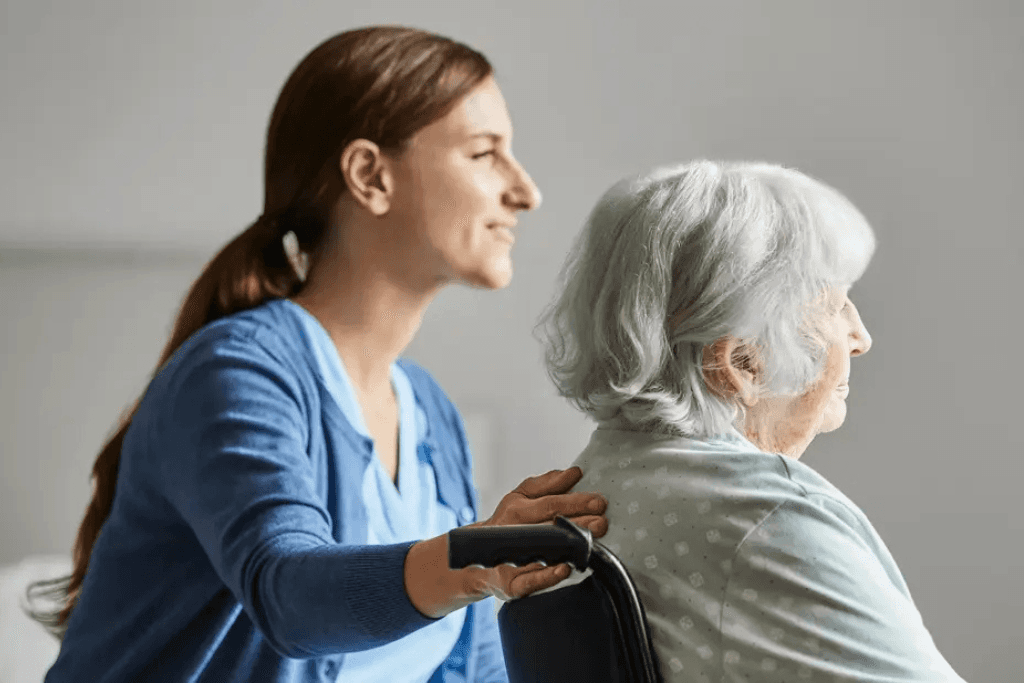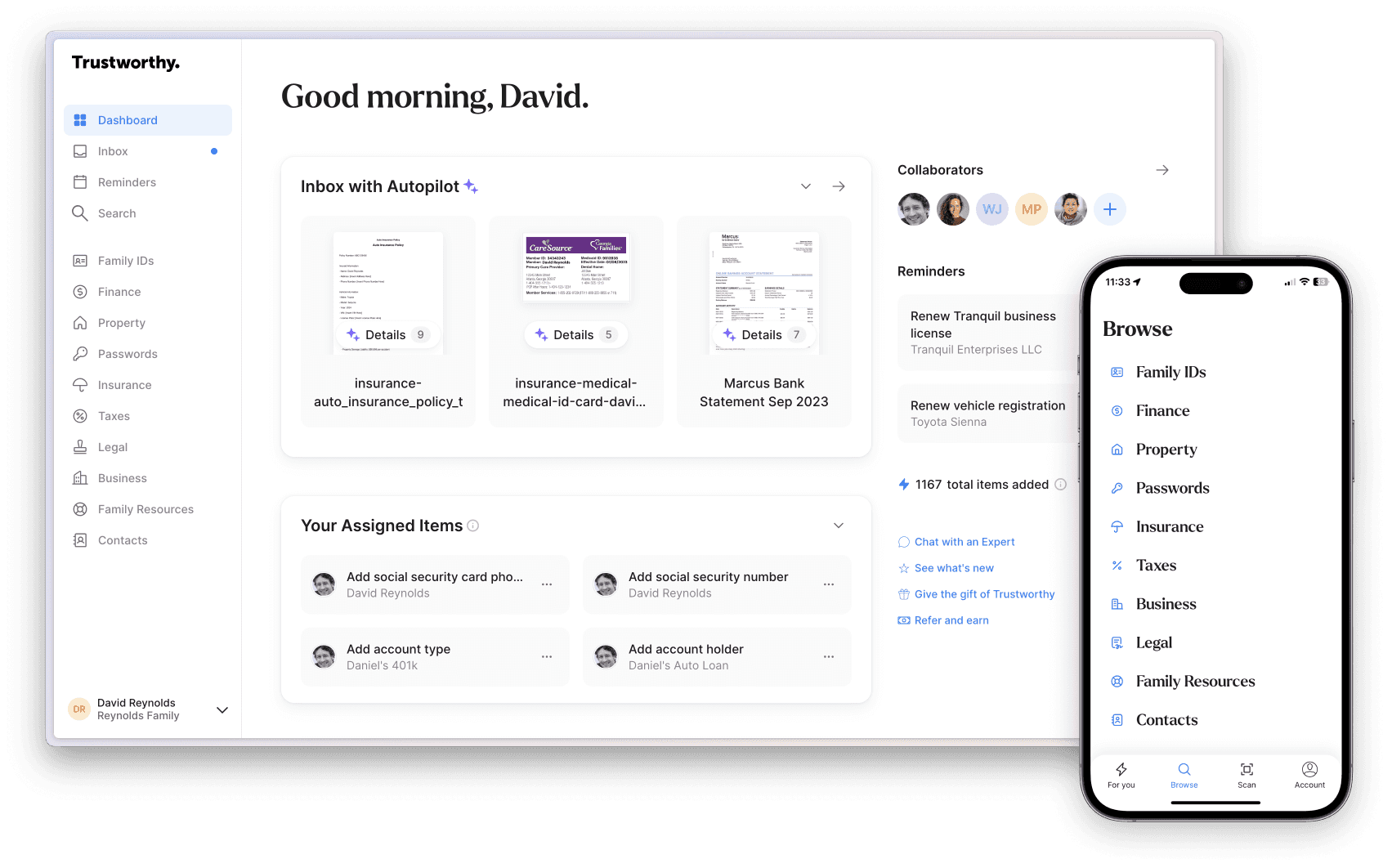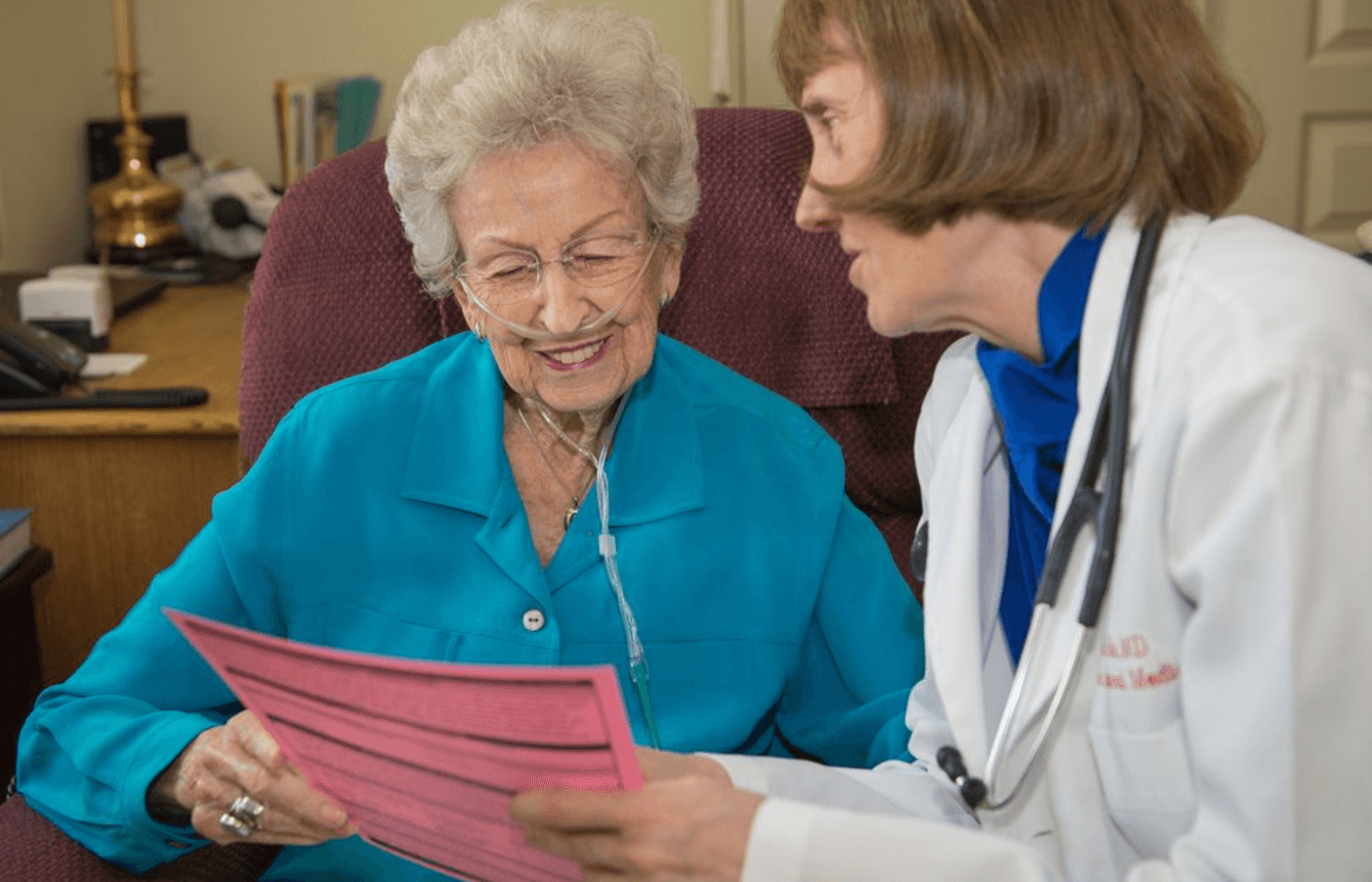There are almost 7 million Americans living with Alzheimer's disease today, and its degenerative effects have the power to devastate those individuals and their families in a variety of ways.
One area that becomes difficult for people with Alzheimer’s is the ability to stay on top of administrative tasks and make legal decisions. That’s why it’s critical for patients to work with loved ones, caregivers, and trusted professionals to set up organization strategies and protocols as early as possible.
That being said, it can be difficult to prioritize life tasks, and knowing where to get started after a loved one receives an Alzheimer’s diagnosis can be a challenge.
That’s why we sat down for a Q&A session with Alfred Polizzotto.
Polizzotto is a managing partner at the Brooklyn-based law firm Polizzotto & Polizzotto. He has more than three decades of experience in elder law, regularly guiding clients and their families through critical processes like creating and managing trusts, setting up advance directives, and creating powers of attorney.
Read on to get his tips on the key documents caregivers need to assemble when taking on administrative duties for loved ones living with Alzheimer’s. He also walks us through physical document storage tips, important legal steps caregivers must take, and the benefits of using digital document management.
What Documents Do Caregivers Need to Support Those Living With Alzheimer’s?

Answer: You need all their medical records, starting from their diagnosis, right to their treatment plans. You also need legal documents, such as a power of attorney and any living wills.
The same goes for financial records. You need their bank statements, insurance policies, and any information about assets or debts that are vital for managing their affairs.
Having these all in one place makes things way easier down the line, especially when you need to make decisions and fill out forms.
What’s the Best Way to Organize Physical Documents for Quick Access?
Answer: Binders are great. I recommend using ones with clear labels for each section. This way, everything is easy to find when you need it.
If you have sensitive documents, there’s nothing like a fireproof lockbox. Also, keep a master list of where everything is stored. This could be a simple spreadsheet that outlines what’s in each binder or folder.
To organize them, start with the three main categories of medical, legal, and financial.
Within each category, create subcategories like separating medical records into sections for doctors, medications, and treatment history. If you have multiple doctors involved, having a contact sheet with their information at the front of the medical section helps.
Should Caregivers Use Digital Organization Tools to Support Loved Ones With Alzheimer’s?
Answer: Definitely. If anything gets lost physically, you have digital backups.
Scan all your important documents and store them in a secure cloud service. Always use strong passwords and two-factor authentication for added security.
If there’s any kind of medical emergency, you don’t want family members scrambling to find important papers while trying to make quick decisions about care. It just makes more sense to have a trusted few people who know where everything is stored.
Why Should Caregivers Set Up an Emergency Document Kit?
Answer: Think of it as the equivalent of a first-aid kit.
It’s a kit that should have all the documents you might need in a crisis, such as copies of medical records, emergency contacts (like doctors and family members), medication lists, and any legal documents like power of attorney forms. I’d also add a list of allergies or special needs the person has.
You need that information in case of an emergency, because time is of the essence.
What Legal Permissions and Authorizations Do Alzheimer’s Caregivers Need to Obtain?
Answer: The most important are power of attorney for financial matters and healthcare power of attorney for medical decisions.
HIPAA authorizations are crucial, too, since they allow family or caregivers to access the patient’s protected health information (PHI), which is helpful for making informed decisions. The patient can give this permission in writing, and it makes everything smoother when it comes to handling health issues.
You might also want to think about an advance directive. It’s a document that outlines the individual's wishes regarding medical treatment and appoints someone to make healthcare decisions if they cannot communicate those wishes themselves.
What Should Be Included in a Patient’s Care Guide?

Answer: Gather all relevant information in one place and keep them updated regularly as things change, such as if there are new medications or changes in financial status.
Regular check-ins between caregivers and family members about any changes help keep everyone on the same page.
What Can Caregivers Do to Guarantee the Privacy and Security of Loved Ones?
Answer: Use secure storage options, both physical, like locked cabinets, and digital storage, like encrypted files.
Be mindful about who you share this information with and regularly check who has access so you can revoke this if anything goes wrong in the event of a dispute or disagreement.
How Should Caregivers Communicate Changes With Family and Healthcare Providers?
Answer: I’d suggest keeping a health journal that tracks symptoms, medications taken (and when), doctor visits, and any changes in behavior or health status over time.
You can even add your own notes and insights about the individual with Alzheimer's.
How Often Should Caregivers Review and Update Their Loved Ones’ Documents?
Answer: Caregivers should review the documents and document kit at least every three months or whenever there’s a significant change in health status or legal circumstances.
Even if you can’t immediately update something, create a checklist for the next time you do so nothing goes missing.
–––––––––––––––––––––––––––––––––
How to Streamline the Organization Process Using Trustworthy

When it comes to implementing these organizational strategies, caregivers need a secure and collaborative single source of truth to ensure that all of their loved ones’ important documents are accessible and easy to find.
That’s where Trustworthy steps up to the plate. Trustworthy’s unique Family Operating System® enables individuals to upload and create digital versions of their important documents.
Families can upload all the essentials required for developing a care plan and taking on admin for a loved one with Alzheimer’s, including advance directives, medical records, powers of attorney, wills, and insurance documents.
From there, Trustworthy’s AI-powered Autopilot tool streamlines the organization process by offering file name suggestions, telling you which folder you should place items in, and even automatically summarizing long documents so that you know exactly what you’re working with.
Trustworthy also sends automated reminders when documents need to be reviewed, like when an insurance policy is nearing its expiration date, for example.
Everything you upload to your Trustworthy vault is protected by cutting-edge security features like robust password recipes, two-factor authentication (including hardware keys), and AES 256-bit encryption.
That being said, collaboration is a key component of Trustworthy.
Individuals can grant granular access to various folders and documents as required. That means caregivers can share view-only access to medical records with their loved one’s doctors or share a copy of important legal documents with their lawyer or other family members.
This ensures everybody’s on the same page when it comes to respecting the wishes of a loved one with Alzheimer’s. It’s also a great way to communicate changes in a loved one’s condition or important legal changes to other family members.
So, are you ready to start organizing your loved one’s key documents? Take a look at Trustworthy’s range of features to discover how it can help you simplify the process.
We’d love to hear from you! Feel free to email us with any questions, comments, or suggestions for future article topics.
Trustworthy is an online service providing legal forms and information. We are not a law firm and do not provide legal advice.














